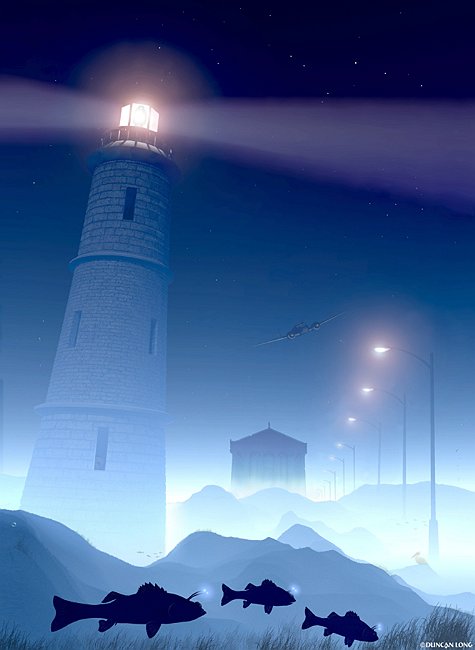What Is an “Artist” These Days?
filed in Book Cover Illustrations and Artwork on May.17, 2010

Perhaps I’ve just become an old crank (please, no affirmative comments are needed). But I’m tired of all sorts of people now proclaiming themselves to be “artists” even when their career paths are anything but artistic.
The overuse of the word is understandable. Traditionally we have “the arts” which include music, dance, painting, sculpting, and so forth. Yet within this group, when you said “artist” (in the not too distant past) you would generally be understood to mean a painter, lithographer, or sculptor — someone in the visual arts community.
And you certainly did not mean someone putting frosting on cakes, trimming trees, or any of the other jobs that mysteriously have become “artist” in nature.
The first to interlopers were musicians, especially those in the field of pop music (perhaps ever yearning for the status enjoyed by those who perform classical music). And so vain pop stars, many of whom couldn’t even read the notes printed on a musical score, become “artists.”
For some time we’ve had “makeup artists.” Now these ranks are being joined by “scene capture artists” (photographers), “culinary artists” (chefs), and you-name-it artists that could be about any profession or trade. As with “visionary,” “awesome,” and “unique,” today the term “artist” means almost anything and nothing at all. As Alice in Wonderland‘s Humpty Dumpty put it, “”When I use a word, it means just what I choose it to mean.”
That’s pretty much how “artist” is used. It means whatever the user wants it to mean, a nebulous title applied to anyone, from a mechanic to beautician to traffic cop.
My intent is not to belittle anyone or any profession. Rather I simply note that it’s a sad day when words lose their meanings due to poor usage. And like Humpty Dumpty, once broken these words can never be put back together again.
Those of us who really are artists in the traditional sense of painting and sculpting now have trouble defining ourselves if our talents include several different areas of expertise within this arena of creativity.
No longer could Michelangelo define himself as “artist” without some folks thinking he would be singing in the Sistine Chapel rather than painting its walls. And were Leonardo da Vinci to call himself an “artist” today, some might assume he would be applying makeup to Mona Lisa’s face rather than painting her portrait.
Likewise “art” now means almost anything, defined by its position rather than its composition. For example, in 2001 the Eyesto’rm gallery in London had to rescue and “reassemble” one of its pieces of art when a custodian threw it out with the trash, having mistaken the pile of cans and plastic glasses that comprised the “artistic creation” as litter left behind by the staff. (To prevent such a disaster from happening again, the gallery staff added a “Do Not Touch” sign to the “art.”)
I would suggest that when “art” can be a random pile of trash, an unmade bed, or bits of animals packed in bottles of preservative (such exhibitions may be viewed in art museums around the world), the word “art” has lost most of its meaning.
So perhaps it is no surprise that the term “artist” no longer denotes what it is that someone does for a living anymore than the term “worker” delineates what one does to earn a living.
So instead of “artist” how about “paint pusher,” “electron arranger,” “marble basher,” or “tin can arranger” depending on the type of artist you might happen to be?
=====================
When not being an “old crank artist,” Duncan Long works as a freelance illustrator for HarperCollins, PS Publishing, Pocket Books, Solomon Press, Fort Ross, Asimov’s Science Fiction, and many other publishers and self-publishing authors. See his book cover illustrations at: http://DuncanLong.com/art.html
=====================